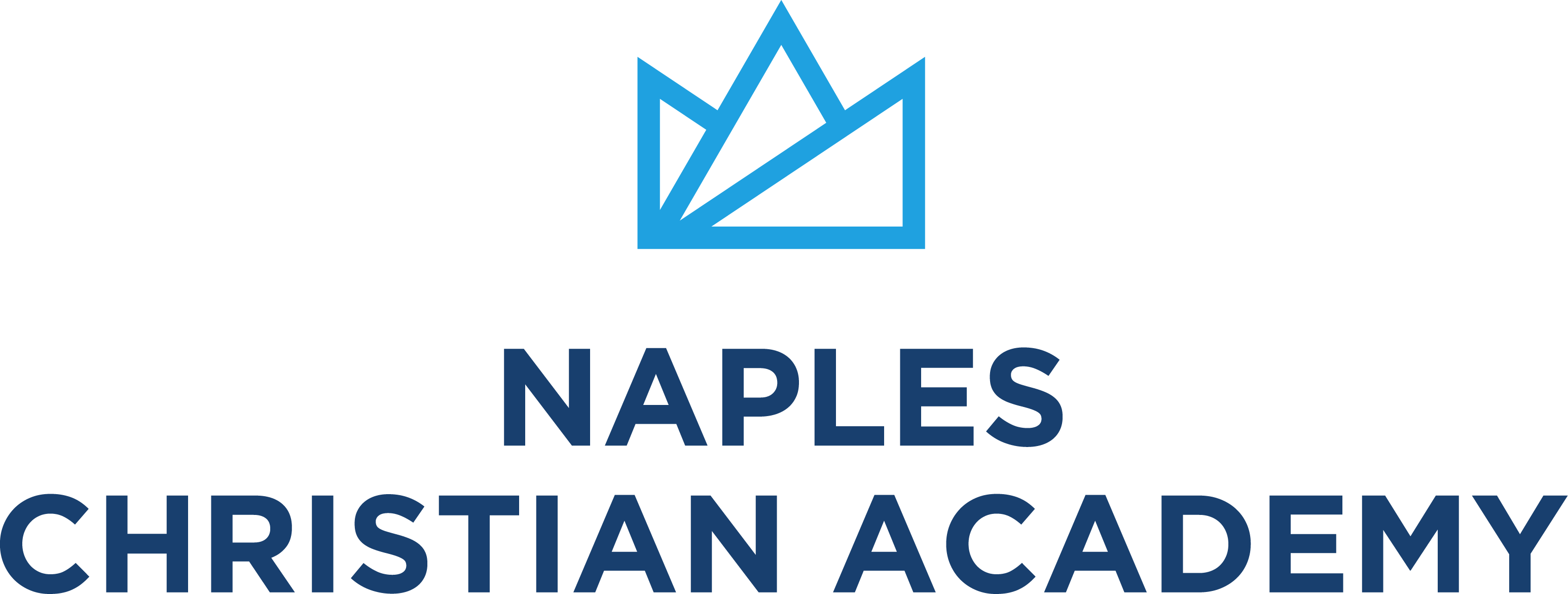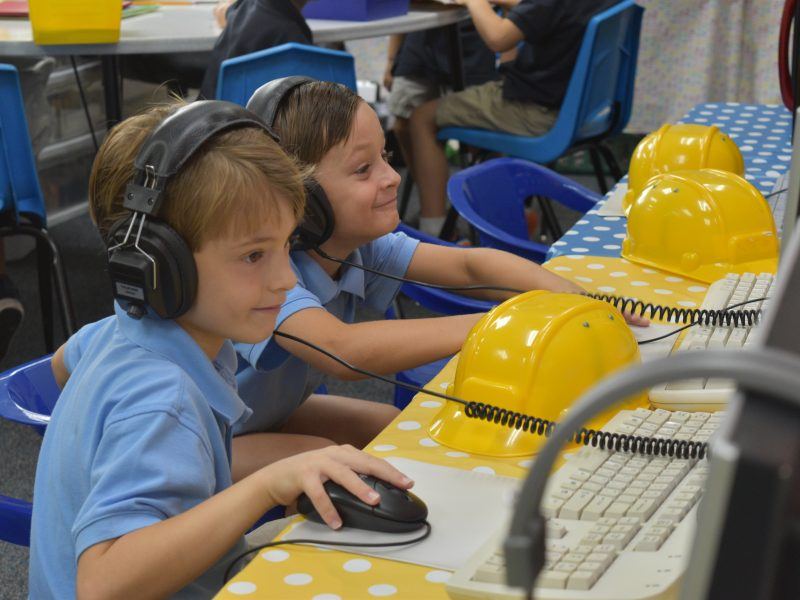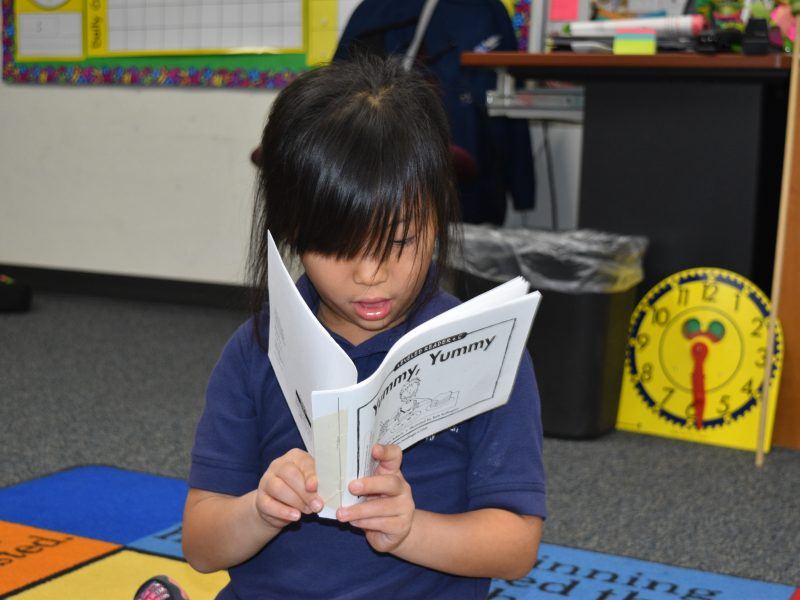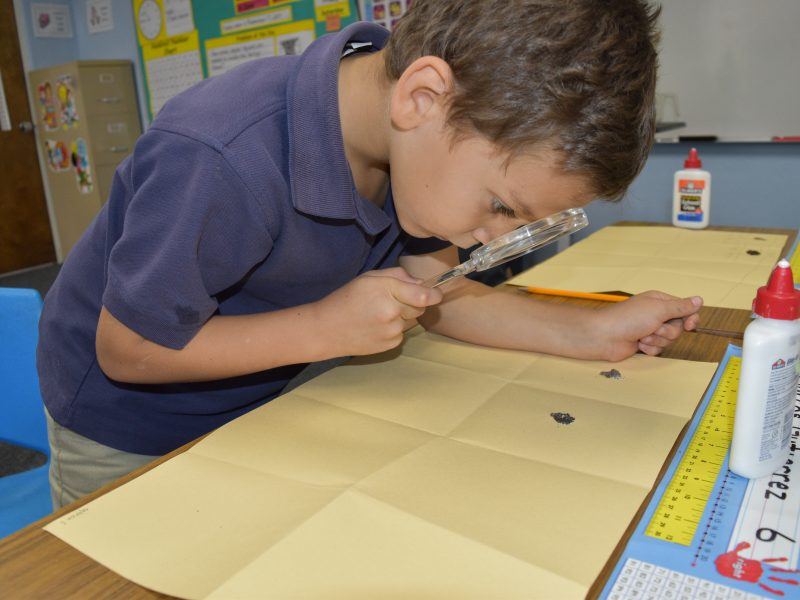Instructional Methods and Critical Thinking Component
A commitment to professional development by the administration and faculty keeps the Naples Christian Academy’s teaching practice grounded in research-based best practices. Instructional methods that target the “whole child” as learner and thinker are an integral part of NCA’s identity.
Naples Christian Academy operates under the premise that creative, engaging, and research-based instructional methods will ensure optimum learning progress. There is a “common language” of teaching and learning utilized throughout all grade levels. This is particularly evident in the implementation of the Thinking Maps curriculum.
Thinking Maps are eight consistent, visual-verbal learning tools, each based on a fundamental thinking process. Thinking Maps help learners at all grade levels engage in higher-level reasoning, yet are concrete and visual to help meet the needs of a variety of learning styles. This program is used across all subject areas. Thinking Maps help students become independent, reflective, life-long problem-solvers and learners who think critically about information.
Literacy
Naples Christian Academy’s balanced literacy program was developed based on research findings indicating the most successful way to teach children to read and write. Reading, writing, listening, and speaking skills are intertwined throughout the school day in all elementary subjects.
Students read and write about a wide range of texts and materials to foster an understanding of self as well as an appreciation of the world in which they live. Important language arts competencies include listening and speaking skills, decoding and encoding skills (phonological awareness), comprehension strategies (oral and silent), reading and writing in the content areas, creative writing, vocabulary development, word study, spelling skills, technology techniques, and an enthusiasm for independent reading and writing.
Reading
Elementary students at Naples Christian Academy are taught to read through a researched-based balanced literacy approach, which includes modeled reading, shared reading, guided reading, and independent reading.
Modeled reading allows for students to learn essential reading skills such as intonation, expression, and higher-level vocabulary from books read aloud by the teacher. During shared reading, a whole-class setting for instruction helps to build a community of readers while targeting reading skills such as fluency, expression, and application of reading strategies. Guided reading enables teachers to work with a small group of students to help them learn effective strategies for processing text with understanding. Through guided reading, teachers are able to meet the varied instructional needs of students and maximize student success.
Consistent with current research, NCA believes that high reading achievement is promoted through independent reading, where students read materials of their own choosing. Elementary students are given time each day to read independently and develop a true love of reading. All reading instruction works together to develop competency in the essential components of reading: phonological awareness, phonics, fluency, vocabulary, and comprehension.
Upper elementary students are given many opportunities to expand their reading skills by participating in literature studies, book reports, and an integration of Social Studies and Science activities that involve the application of higher-level thinking skills and creativity.
Writing
Elementary students at the Academy are taught essential writing skills through developmentally-appropriate writing instruction. Teachers instruct the writing processes of prewriting, drafting, composition, revising, and editing.
Teachers develop the students’ abilities in the areas of main idea, supporting details, organization, coherence, and conventions. They build upon and extend the instruction of the previous grade level by using focused mini-lessons and rubrics so that the high-level expectations of writing are achieved.
Math
It is the desire of Naples Christian Academy that all students gain a deep understanding of mathematical concepts and their applications. The mathematics curriculum at the Academy is coherent within and across grade levels.
Math instruction emphasizes in-depth development of important concepts and skills in the five content strands: Number Sense, Measurement, Geometry and Spatial Sense, Algebraic Thinking, Data Analysis and Probability.
Elementary students are instructed at one grade level ahead in order to prepare all students for advanced math in middle school and high school. NCA students are taught mathematics through a distributed approach whereby skills are broken into small increments and systematically distributed across the grade level, which leads to deeper understanding of concepts and higher levels of learning.
This type of “spiral curriculum” offers continual practice, review, and many opportunities to apply skills. Students develop strong computation skills for fact mastery, as well as in-depth problem solving and mental math strategies.
Bible
Naples Christian Academy’s mission of developing hearts impassioned to love God, minds disciplined to think biblically, and hands prepared to serve could not come to fruition without the essential teaching of a comprehensive Bible curriculum. Naples Christian Academy’s Bible curriculum is focused on teaching students to think critically about their faith.
Students are expected to defend their faith, and not simply to recite doctrine. Bible curriculum is implemented through weekly Chapel, daily Bible lessons, and Biblical integration throughout the academic content areas. Through developmentally-appropriate Bible teaching, students develop a concept of God and of humanity that ultimately shapes their values and character.
Character traits such as honesty, perseverance, patience, integrity, and humility are taught as part of the Bible curriculum and are modeled by faculty and staff. Additionally, every NCA student is engaged in a class community service or mission project that allows the ministry of Naples Christian Academy to stretch beyond the walls of the school building and to impact the community, the nation, and the world. Through these projects, students recognize and understand they are set apart by God for His purposes, and that they have the ability to make an impact as students.
The life they live will reflect the principles of God’s Word, and they will influence the world. Although Bible curriculum is taught as a core subject, biblical truth is woven into all academic areas so that students learn to apply their faith to all subject areas and daily life. It is because of the development of this type of critical thinking that students at Naples Christian Academy today will become the leaders of tomorrow.



